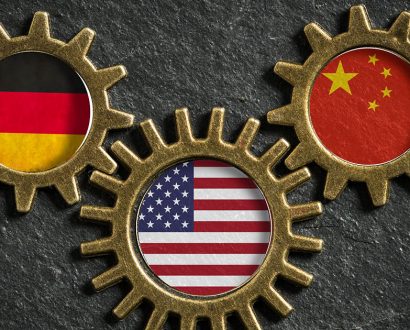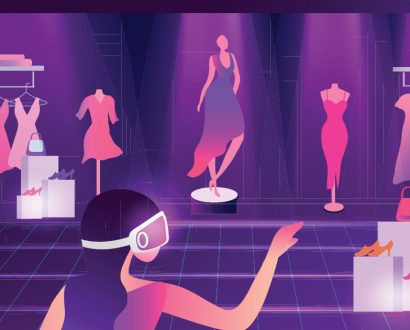The future of work is exciting, flexible and, if Pulsifi has anything to do about it, full of opportunity for everyone. With a mission to change how talent is defined in the workplace, Pulsifi’s revolutionary AI-powered analytics platform helps organizations of all kinds discover untapped potential in their workforce – bias-free.
“What I love about Pulsifi is the effect it has on diversity,” Pulsifi Chief Business Officer Christine Sterk tells The CEO Magazine. “With AI, we are able to predict the potential of people within an organization, optimizing performance. As a side effect, something as superficial as how a person looks is eliminated.”
Banishing the ‘boys’ club’

Pulsifi’s People Data Platform uses an algorithm that emphasizes the personality of staff and incoming talent to ensure a culture fit. The end result is a team of people who are aligned on a much more human level. Interestingly (perhaps, unsurprisingly), Sterk says this technology is helping women stand out from the crowd. “Now, it’s absolutely possible to have a 50–50 equal selection. Pulsifi completely takes the ‘boys’ club’ out of the equation,” she says.
“Building teams with this technology prevents the acquisition of talent that’s based on the way people look, their gender, whether or not they came from the ‘right’ school or attended the ‘right’ club. It eliminates all of that, which means we all stand equally based on our knowledge and how we perform.”
A single mother to two teenage girls, Sterk is a strong advocate for women’s equality. An entrepreneur by nature and not one to shy away from a challenge, she built her first business, which converted traditional media to digital, in the very male-dominated industry in Malaysia in the late 90s. “It was a closed and corrupted market,” she remembers.
“The interesting thing is that I was a woman driving the company. Yet, I had to have a man stand in front of me, relaying my message to the businessmen in the room because they would only speak to another man.”
Grit and determination, plus a strong licensing agreement that meant she had to pay US$300,000 a year whether the company was profitable or not, kept her going. More than that, though, it made her hungry for change. “While my first business disrupted an industry, eliminated a lot of chemicals and did a lot of good, I was determined to do even more good,” Sterk says.
“That’s what I love about Pulsifi. When you start using AI not to replace humans, but to help humans find their right place and be happy in their work, it’s exciting.”
The future workforce

Pulsifi’s platform is revolutionizing the future of work with near perfect accuracy. The AI-driven platform boasts 97 percent accuracy in predicting culture and values fit, 81 percent accuracy in predicting competencies and behaviors in talent to support learning and development, and a 40 percent reduction in total interview time thanks to securing and shortlisting higher-quality candidates from the get go.
A peek beneath the platform’s hood reveals its powerful engine, which utilizes predictive analytics together with AI to analyze the hard skills, soft traits and holistic data of each candidate. By leveraging the Pulsifi platform, organizations confidently make people decisions based on benchmarked success profiles that are tailored to their competency framework.
Real-time data-driven insights also help Pulsifi clients like global giants Nestlé, L’Oréal and Heineken really get to know their talent on an individual scale. And with thousands of models and mappings in its database, customers benefit from tailored solutions without costly processes. “Our platform allows organizations to look at people from a very holistic perspective,” Sterk explains.
“It’s more than how good they might look on paper. Now, we are looking at people in a way that considers their personality, what their work interests are, what their belief system is and what their competencies are as well. It’s having a substantial impact on the modern workforce.”
The modern matchmaker

The last few years have, undoubtedly, been challenging for organizations across the globe with trends such as the Great Resignation and ‘quiet quitting’ taking root. In fact, according to a recent report, over half of respondents admitted to struggling to attract the talent they need. Pulsifi addresses this challenge in a way that benefits both the employer and talent.
“Pulsifi doesn’t just help employers find the right people, it also helps talent find the right fit within an organization,” Sterk says. “When people find a job that’s a good fit, they feel happier and more inspired to achieve. They thrive. On the flipside, if it’s not the right place, then it’s also difficult for them to succeed.”
While everyone wants a fulfilling job that pays decently, gen Z (born between 1997 and 2010) is demanding it. Estimated to account for 27 percent of the workforce by 2025, this generation wants satisfaction from their roles and many will even accept a lower salary to achieve this. They’re also prioritizing roles where they can expand their skills and broaden their talent.
Understanding the market and motivated to make a difference, Pulsifi recently released a learning component to its platform with more than 80,000 courses built in. “Unlike traditional learning platforms, Pulsifi isn’t simply mass delivering learning. Instead, we customize the learning journey to each individual,” Sterk explains.
“By identifying their knowledge gaps, we provide the course framework that maps out their journey to success as a leader and contributor in their organization.”
This year, Sterk is immersed in further expanding the company’s global footprint, rolling out the Pulsifi product to six new countries, including the United States. Already, the talent disruptor has offices in Spain, Brazil, Australia, the United Kingdom and more.
While Pulsifi isn’t eliminating an industry, there’s no denying that it’s transforming the world of work. “There is no other company in the world that can do what we do and to the degree of accuracy that we do it,” Sterk says.
“Pulsifi is making a difference to people’s lives and careers and to organizations. In the face of a looming recession, it’s important that you have the right people in place.”







